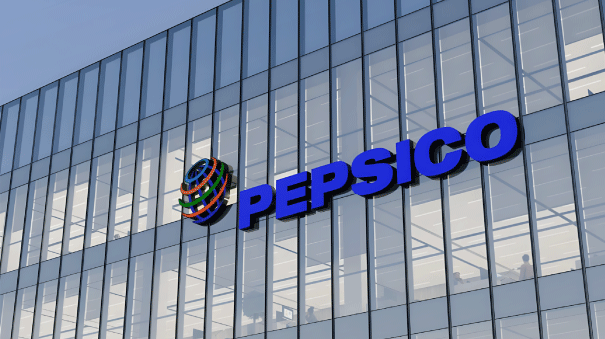Introduction
The explosive growth of e-commerce has pushed logistics companies to rapidly adopt new technologies to keep pace with rising demand and evolving consumer expectations. In this race for speed, accuracy, and efficiency, the spotlight often falls on transport automation, smart warehousing, and real-time tracking. Yet, behind every shipment lies a silent but essential process — printing. From shipping labels and invoices to customs forms and inventory reports, printing plays a critical role in ensuring smooth logistics operations. However, managing a scattered print environment across various locations can be daunting, as logistics networks grow more complex and dispersed. This is where Managed Print Services (MPS) steps in — offering centralized control, cost efficiency, and improved document security, while quietly keeping the supply chain moving.
Managed Print Services are comprehensive solutions that optimize and manage an organization’s printing needs. In the logistics industry, where time is money and accuracy is paramount, MPS can provide substantial operational benefits. With the growing complexity of print infrastructure in logistics networks and the demand for cost-effective, secure, and scalable printer management, MPS is emerging as a strategic print management strategy.
Why Logistics Needs Managed Print Services?
Logistics companies operate across multiple hubs, warehouses, and offices. Each location may have different printing requirements and devices, leading to inefficiencies, inconsistent print quality, and increased operational costs. Managed Print Services offer centralized control over all printing activities, ensuring seamless functioning regardless of the number of sites.
Key benefits of MPS for logistics companies include:
- Improved Operational Efficiency: MPS providers streamline print operations, standardize processes, and reduce manual intervention. Automated workflows, remote monitoring, and predictive maintenance ensure devices are always ready to perform, minimizing downtime and enhancing employee productivity.
- Cost Reduction: One of the major drivers of Managed Print Services (MPS) market growth is the rising need to cut operational costs, a priority made even more urgent by the impact of inflation on fuel, freight, and labour in the transportation sector. As logistics companies navigate tighter margins, there’s a renewed focus on identifying and eliminating hidden inefficiencies across the value chain. MPS helps by reducing wasteful printing, optimizing device usage, and offering detailed usage analytics. With the ability to track print volumes by department or location, logistics teams can enforce print policies, streamline printing habits, and manage supply management, such as toner and copier usage.
- Scalability: Logistics operations are dynamic. As e-commerce penetrates deeper into Tier 2 and Tier 3 cities, and quick-commerce models like Swiggy Instamart and Blinkit fuel hyperlocal delivery demand, new distribution hubs are rapidly emerging in previously untapped markets. In 2023, Tier 2 and Tier 3 cities accounted for 60% of India’s total e-commerce sales. Additionally, during the 2024 festive season, these cities drove a 13% increase in e-commerce spending compared to the previous year NCR TechX+1sunilkumargupta.com+1The Financial Express+1Outlook Money+1. This surge necessitates a flexible and scalable logistics infrastructure. MPS solutions are inherently scalable, allowing logistics companies to seamlessly add or remove devices and services in line with business growth, without disrupting operations. Whether setting up a new facility in a metro or a fulfilment point in a smaller town, MPS ensures that print infrastructure keeps pace with the business.
- Enhanced Security and Compliance: Logistics companies handle sensitive data such as customer information, shipment details, and financial documents. Managed print services includes features like secure print release, user authentication, and document tracking to ensure confidentiality and compliance with data regulations. Logistics companies handle a vast array of sensitive data — from customer information and shipment records to regulatory documents and invoices. Ensuring the confidentiality and integrity of this data is critical, especially in light of increasing cybersecurity threats and regulatory oversight. Managed Print Services (MPS) enhance security through features such as secure print release, user authentication, and document tracking, helping companies maintain strict control over document access and handling.
In India, regulatory compliance is also being digitized. According to a circular issued by the Ministry of Road Transport and Highways, logistics operators are mandated to carry and present specific digital documents like the e-way bill, e-invoice, and consignment note. These documents must be readily accessible for inspection, either in physical or electronic form. MPS can play a crucial role here by ensuring that all necessary paperwork is accurately printed, securely stored, and easily retrievable on demand, reducing the risk of non-compliance and penalties.. - Environmental Sustainability: Sustainable printing practices are becoming a priority across industries, and logistics is no exception. Efficient print management reduces paper consumption, energy usage, and waste by implementing duplex (double-sided printing), setting print quotas, and recycling consumables. With optimization of printer usage and enforcing print policies, MPS contributes to environmentally sustainable operations.
Managed Print Services Market Trends Shaping Logistics
The global Managed Print Services market is evolving rapidly, driven by technological advancements and changing business needs. Some of the key managed print services market trends relevant to logistics include:
- Cloud-based Print Management: Cloud integration allows for centralized management of print environments across all logistics hubs, improving accessibility and control.
- Data Analytics and AI: Modern MPS platforms use analytics and artificial intelligence to predict maintenance needs, optimize workflows, and generate actionable insights.
- Mobile and Remote Printing: With teams on the move, mobile printing capabilities are essential. Employees can securely print from smartphones or tablets, improving agility.
- Integration with ERP and WMS: MPS can seamlessly integrate with Enterprise Resource Planning (ERP) and Warehouse Management Systems (WMS), automating documentation processes like pick lists and dispatch notes.
The Indian Perspective: Managed Print Services in India
India’s logistics sector is exploding rapidly, fuelled by e-commerce, manufacturing, and infrastructure development. This expansion brings with it the need for smarter, tech-enabled operations. Managed Print Services in India are gaining traction as organizations recognize their value in streamlining processes and reducing costs.
Indian companies are increasingly conscious of sustainability and print security, two areas where MPS provides robust print management solutions. With cloud printing, mobile printing, and integrated content management, logistics companies in India are adopting efficient print management practices to improve productivity and efficiency.
Choosing the Right Managed Print Service Providers
Partnering with the right MPS provider can make all the difference. Look for Managed Print Service providers who:
- Have experience in the logistics domain
- Offer nationwide service and support
- Provide cloud-enabled print management software solutions
- Deliver robust security and compliance features
- Can integrate with your existing IT and warehouse systems
Wepsol: Powering Logistics with Smart Print Management
One of the leading players in this space is WeP Solutions Limited, known for its innovative MPS offering—fluidPrint. With over two decades of experience, Wepsol understands the unique challenges of the logistics sector. Their solutions are tailored to support multi-location environments with centralized control, predictive maintenance, and advanced analytics.
Wepsol’s Print Management Services offer logistics companies:
- Optimized print device deployment
- Cost control through print usage tracking
- Environmentally sustainable practices
- Secure document management
- Nationwide support and on-demand scalability
Conclusion
In an industry where precision, speed, and efficiency define success, logistics companies cannot afford to overlook any aspect of their operations—including printing. Managed Print Services provide a strategic advantage by streamlining print infrastructure, reducing costs, enhancing security, and supporting business scalability.
As the managed print services market continues to grow and evolve, logistics players need to stay ahead by embracing the latest managed print services market trends. With the right partner, such as WeP Solutions Limited, logistics companies in India and beyond can turn print management from a challenge into a competitive advantage.
If you’re in the logistics space and want to optimize your printing operations, managed print services can help. Choose an effective print management service that turns your print environment into a driver of efficiency, not a barrier to growth.

